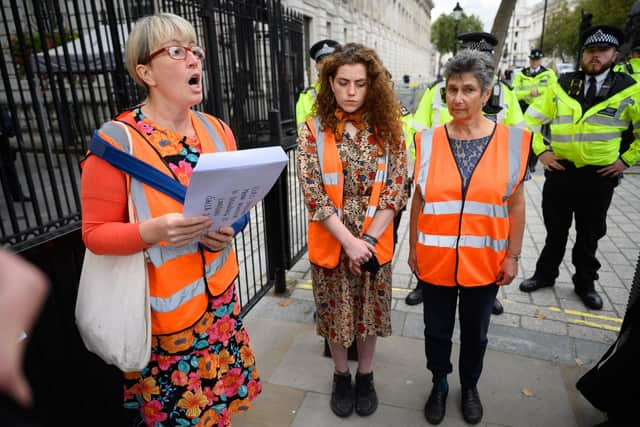Climate change, cost of living crisis and high energy bills all show why a 'war effort' to boost home insulation is now vital – Dr Richard Dixon
The Environmental Audit Committee reported on their inquiry into accelerating the transition from fossil fuels. They called for urgent action on energy efficiency, solar energy and an end to oil-and-gas licensing. In particular, they called for the use of oil-and-gas windfall taxes to insulate people’s homes.
Around a quarter of our climate emissions come from the use of energy in the home, including accounting for a third of UK gas consumption. Every unit of energy we save is one less we need to change from fossil fuels to renewables. By reducing the fossil fuels used to heat homes and make hot water, you tackle one of the most intractable sources of climate change emissions.
Advertisement
Hide AdAdvertisement
Hide AdBy expanding and developing existing retrofit programmes you create construction and technical jobs, and support existing and new industries. And, of course, you can massively improve the lives of people living in our worst quality homes, with healthier homes reducing NHS costs – one estimate says that every £1 spent on reducing fuel poverty saves the NHS 42p.
The Insulate Britain protesters have highlighted the issue. Scotland’s Climate Assembly made zero-emission homes one of their top recommendations. Yet home energy efficiency is rarely seen as exciting by politicians. It was point seven in Boris Johnson’s ten-point plan on energy security, didn’t feature at all in Liz Truss’ plans to address soaring energy bills, and Rishi Sunak’s promised massive efficiency programme is yet to materialise.
The situation is better in Scotland. Here grant schemes have been maintained while they were cut down south, and there is a current commitment to spend £1.8 billion over the life of this parliament. Targets include all homes reaching a minimum energy efficiency standard by 2033, phasing out fossil fuel boilers, a million homes with low or zero-emission heating systems by 2030, and zero emissions from homes by 2045.
Last year Labour MSP Alex Rowley proposed a bill which would massively increase the energy efficiency of all new-build housing and the government have recently committed to putting this into law. All good but still not enough, not yet the "war effort” called for by the Environmental Audit Committee.
There is no great mystery to reducing emissions from homes, we know what needs doing, we just need to do more of it and faster. The current Scottish Government programme predicts 16,000 extra jobs by 2030 but research for the STUC on economic recovery found that investing in retrofitting homes was the most attractive option to create the maximum jobs per pound, with the potential to create 60,000 jobs from a larger and sustained investment.


Doubling the rate of insulation upgrades could see every home reach an acceptable standard in the next 15 years. Doubling the proposed rate of installing heat-pump heating systems could see every home converted by 2030, perhaps supported by a Swedish-style carbon tax on heating fuels.
For people, climate and jobs, a war effort on home energy use is what we need.
Dr Richard Dixon is an environmental campaigner and consultant
Comments
Want to join the conversation? Please or to comment on this article.